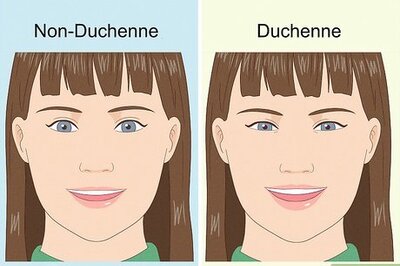
views
Menopause can sometimes be misdiagnosed as cardiac symptoms because the symptoms of menopause, such as hot flashes, palpitations, and chest discomfort, can resemble those of heart problems. It is crucial to differentiate between the two to ensure appropriate treatment and care.
To differentiate between menopause and cardiac symptoms, the following steps can be taken:
- Medical history: A comprehensive medical history will help determine if a woman is in the typical age range for menopause and whether she has any risk factors for heart disease.
- Physical examination: A physical examination may reveal signs associated with menopause, such as changes in the breasts, vagina, or skin. Examination of the heart and vital signs can provide additional information.
- Diagnostic tests: Various tests can aid in differentiating between menopause and cardiac symptoms. These may include:
- Blood testsBlood tests can measure hormone levels (such as follicle-stimulating hormone) to determine if a woman is experiencing menopause. Lipid profile and cardiac enzymes may also be assessed to evaluate heart health.
- Electrocardiogram (ECG)An ECG records the electrical activity of the heart, helping to identify any abnormalities or signs of heart disease.
- Stress testA stress test evaluates how the heart functions during physical activity. It can help determine if the symptoms are related to heart problems or hormonal changes.
- EchocardiogramAn echocardiogram uses ultrasound to create images of the heart, allowing for a detailed assessment of its structure and function.
- Coronary angiogramThis invasive procedure involves injecting dye into the heart’s blood vessels and taking X-ray images. It helps identify any blockages or narrowing of the coronary arteries.
Consultation with specialists: Depending on the symptoms and initial evaluations, specialists such as gynecologists, cardiologists, or endocrinologists may be involved in the diagnostic process.
It’s important to consult with healthcare professionals who can accurately assess the symptoms and provide appropriate guidance. If there is uncertainty regarding the diagnosis, seeking a second opinion can be beneficial.
















Comments
0 comment